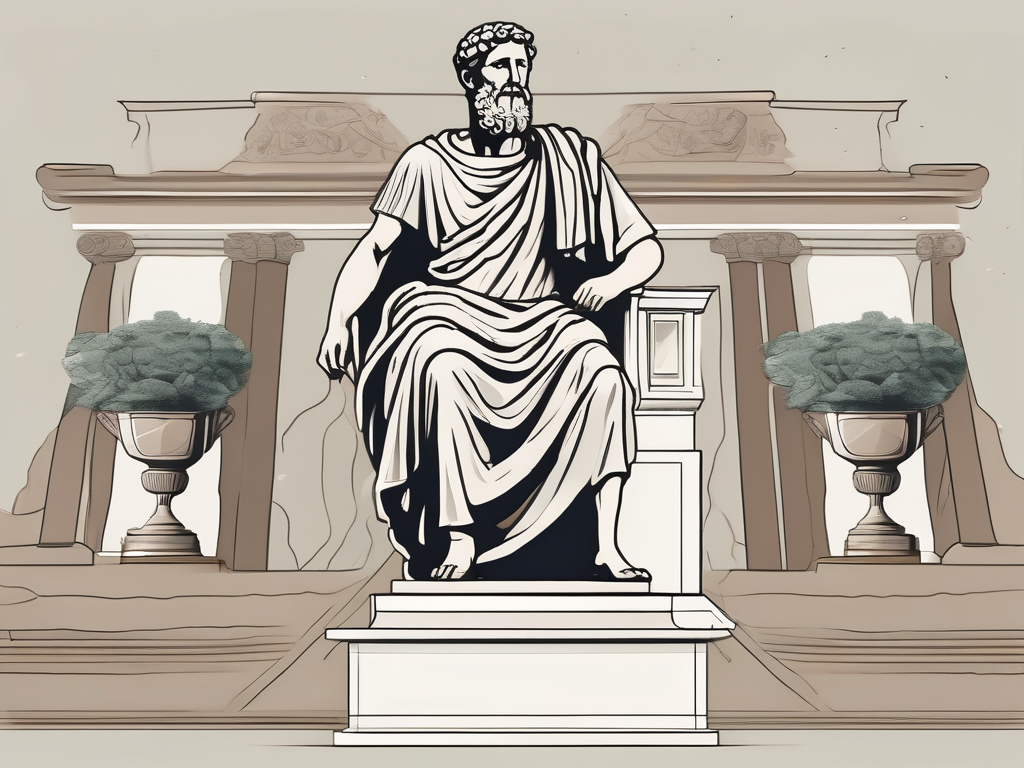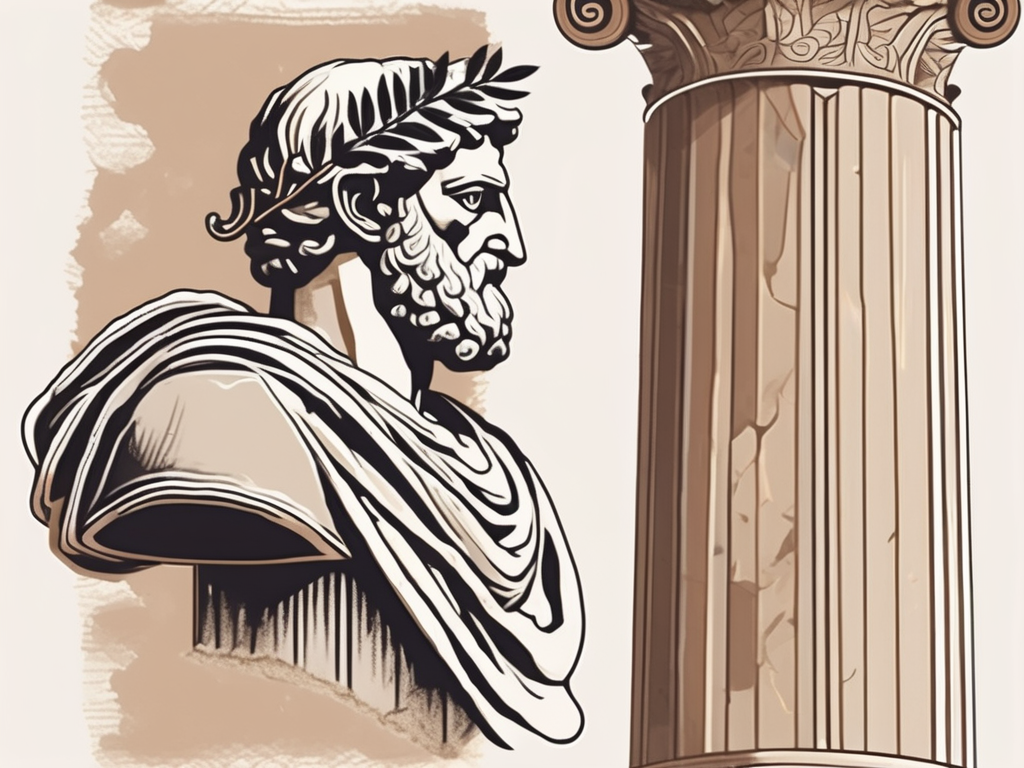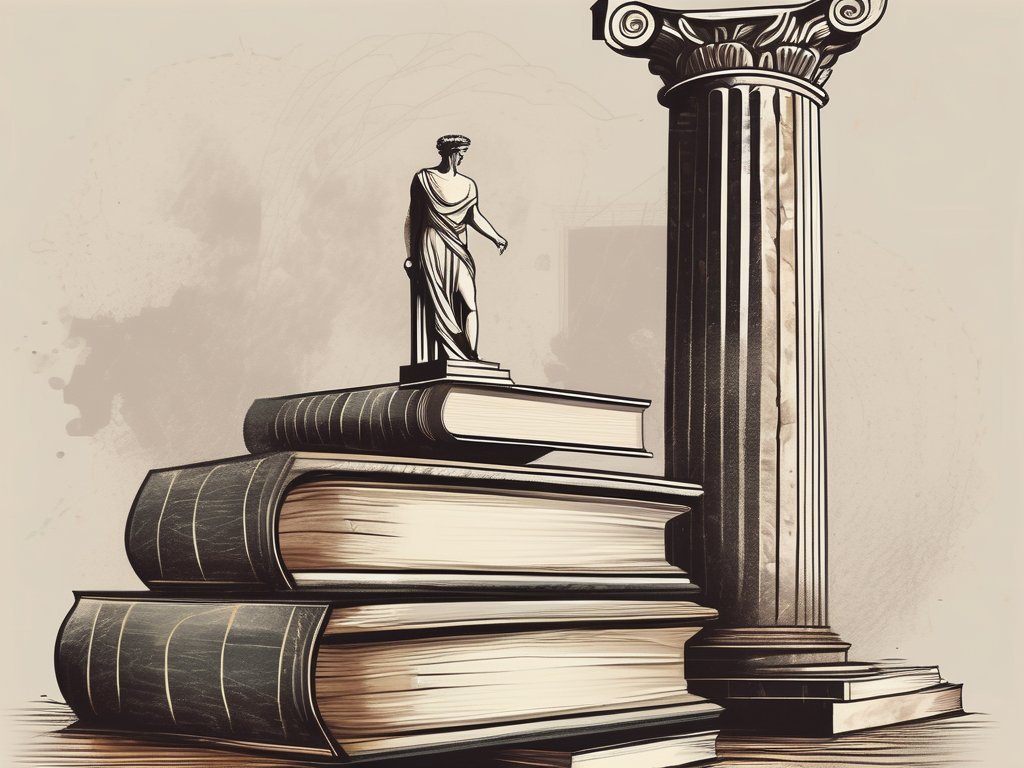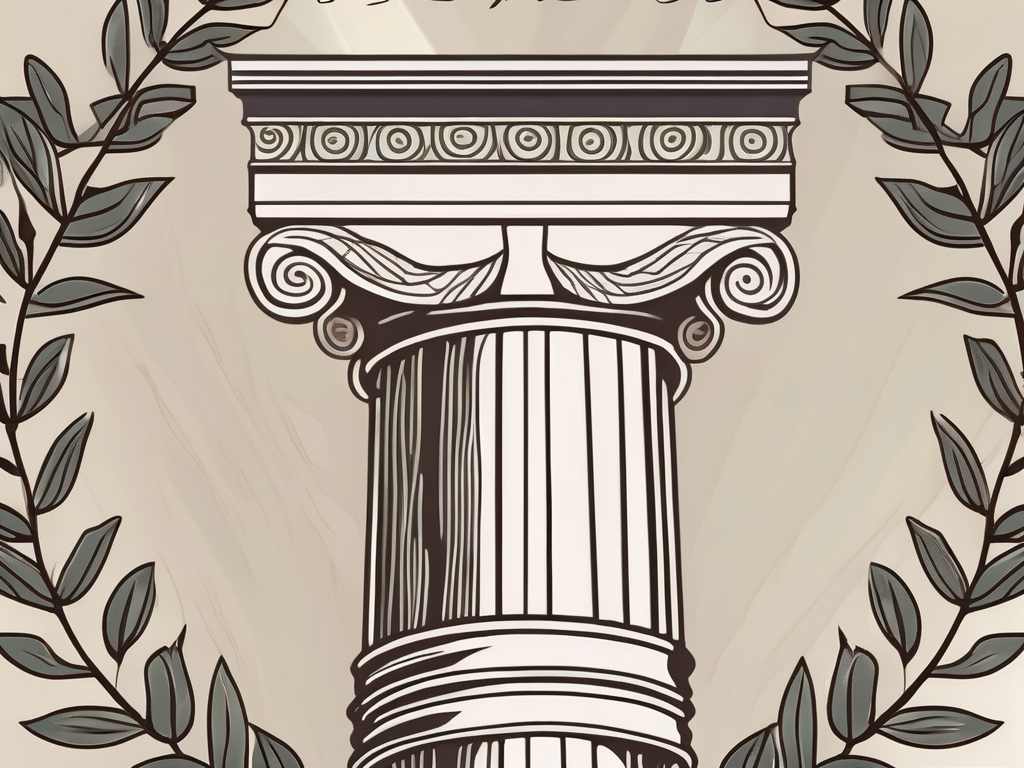Stoicism, an ancient philosophy rooted in Greece, is often associated with esteemed names like Marcus Aurelius and Epictetus. However, one lesser-known figure, Arius Didymus, played a significant role in shaping Stoic thought during his time. Let’s delve into the life, contributions, and interpretations of Arius Didymus in the realm of Stoicism.
Understanding Arius Didymus: His Life and Influence
Before exploring his philosophical contributions, it is essential to gain some insight into Arius Didymus’ early life and education. Born in Alexandria during the first century BCE, Didymus received a comprehensive education that enabled him to develop a profound understanding of philosophy.
Didymus’ intellectual journey led him to study Stoic principles. He immersed himself in the teachings of renowned Stoic philosophers, including Zeno of Citium and Chrysippus. His passion for Stoicism blossomed, and he went on to contribute substantially to the field, leaving a lasting impact on the philosophy.
Early Life and Education of Arius Didymus
Didymus’ early life was marked by intellectual curiosity. As a young boy, he showed an innate ability to grasp complex ideas and engage in intellectual debates. His natural inclination towards philosophy guided his educational journey, leading him to study under renowned scholars in Alexandria.
During his formative years, Didymus immersed himself in various schools of thought, including Epicureanism and Neoplatonism. However, it was Stoicism that truly captured his heart and became the foundation of his philosophical pursuits.
As Didymus delved deeper into Stoicism, he became fascinated by the concept of the “Stoic sage.” He dedicated countless hours to studying the lives and teachings of the Stoic sages, seeking to understand their wisdom and emulate their virtuous lives. This pursuit of wisdom and virtue became a driving force in his philosophical journey.
Furthermore, Didymus’ education extended beyond the realm of philosophy. He also studied mathematics, astronomy, and rhetoric, recognizing the importance of a well-rounded education in shaping a comprehensive understanding of the world.
Arius Didymus’ Contribution to Stoicism
Didymus’ contributions to Stoicism were multifaceted and far-reaching. He tackled numerous aspects of the philosophy, examining its core principles and offering his unique interpretations.
One of the fundamental areas Didymus delved into was the Stoic view of ethics. As an ardent believer in virtue, he emphasized the importance of living in accordance with nature and manifesting moral excellence through reason and self-discipline. Didymus argued that true happiness could only be attained by mastering one’s desires and embracing inner tranquility.
Didymus’ exploration of ethics led him to develop his own concept of “Stoic eudaimonia,” or flourishing. He believed that true flourishing could only be achieved by aligning one’s actions with the principles of virtue, thereby attaining a state of inner harmony and contentment.
In addition to ethics, Didymus explored Stoic beliefs about nature and the universe. He saw the cosmos as a harmonious whole governed by rationality and interconnectedness. His interpretations highlighted the significance of embracing the natural order, accepting fate, and finding solace in understanding that everything happens for a reason.
Furthermore, Didymus delved into the Stoic concept of “oikeiôsis,” which refers to the process of developing a sense of kinship with all living beings. He argued that by recognizing the inherent interconnectedness of all things, individuals could cultivate empathy and compassion, leading to a more harmonious and virtuous society.
Didymus’ contributions to Stoicism extended beyond his philosophical writings. He was known for his engaging and thought-provoking lectures, attracting students and scholars from far and wide. His eloquence and ability to articulate complex ideas in a clear and accessible manner made him a highly sought-after teacher.
Furthermore, Didymus actively engaged in philosophical debates and discussions, challenging prevailing ideas and offering innovative perspectives. His intellectual prowess and unwavering commitment to the pursuit of truth earned him the respect and admiration of his peers.
In conclusion, Arius Didymus’ life and influence were marked by a deep dedication to Stoicism and a relentless pursuit of wisdom and virtue. His contributions to the field of philosophy, particularly in the areas of ethics and the nature of the universe, continue to resonate and inspire philosophical discourse to this day.
The Core Principles of Stoicism
Before delving deeper into Didymus’ unique interpretations, let’s explore the core principles that define Stoicism. At its heart, Stoicism encourages individuals to cultivate virtues such as wisdom, courage, justice, and moderation.
Stoicism places great emphasis on the power of reason and the ability to discern between what is within our control and what is not. According to Stoic principles, one should focus on the things they can influence and accept with equanimity those they cannot.
This philosophy also advocates for living in harmony with nature and developing a sense of unity with the world. By recognizing our place within the greater cosmic order, Stoicism teaches us to embrace life’s ups and downs and find serenity in the face of adversity.
When it comes to wisdom, Stoics believe in constantly seeking knowledge and understanding. They value intellectual growth and see it as a lifelong pursuit. By expanding our understanding of the world, we can better navigate its complexities and make wiser decisions.
Courage is another virtue highly regarded in Stoicism. It is not just about physical bravery, but also about having the courage to face our fears, take risks, and stand up for what is right. Stoics believe that by cultivating courage, we can overcome obstacles and live a more fulfilled life.
Justice is an essential principle in Stoicism. It involves treating others with fairness, respect, and empathy. Stoics believe in the inherent worth and dignity of every human being and strive to create a just and equitable society.
Moderation, or temperance, is also emphasized in Stoicism. It is about finding balance in all aspects of life, avoiding excesses, and practicing self-control. By practicing moderation, Stoics aim to live a life of harmony and avoid the pitfalls of indulgence and overindulgence.
The Stoic View of Ethics
In Stoic ethics, Arius Didymus emphasized the importance of aligning our actions with virtue. He believed that true happiness stemmed from living a virtuous life, guided by reason and a commitment to moral excellence.
For Didymus, ethics were not just theoretical concepts but practical guidelines for everyday life. He advocated for self-discipline, temperance, and cultivating a moral character. By adhering to Stoic ethics, individuals could navigate life’s challenges with integrity and lead a life of purpose.
Didymus also emphasized the importance of personal responsibility in Stoic ethics. He believed that individuals have the power to shape their own character and actions, and that they should take ownership of their choices. By taking responsibility for our actions, we can strive to become better individuals and contribute positively to society.
Stoic Beliefs about Nature and the Universe
Alongside his exploration of ethics, Arius Didymus also offered unique insights into the Stoic beliefs surrounding nature and the universe. He saw the cosmos as a grand interconnected web, where everything had a purpose and function.
According to Didymus, understanding and accepting this cosmic order brought profound peace of mind. By aligning oneself with nature, individuals could find tranquility amidst chaos and derive a sense of meaning and purpose from the world around them.
Didymus believed that nature was not something to be conquered or controlled, but something to be embraced and respected. Stoics saw themselves as part of nature, not separate from it, and believed in living in harmony with its rhythms and cycles.
Stoics also believed in the interconnectedness of all things. They saw the universe as a vast network of relationships, where every action had a ripple effect. By recognizing our place within this interconnected web, Stoics sought to live in a way that promoted harmony and balance.
Overall, Stoicism offers a comprehensive philosophy for living a meaningful and fulfilling life. Its core principles of virtue, reason, and harmony with nature provide a framework for personal growth, ethical conduct, and finding serenity in a chaotic world.
Arius Didymus’ Interpretation of Stoicism
While rooted in Stoic principles, Arius Didymus developed his own nuanced interpretations of the philosophy. His unique perspective shed light on various aspects of Stoicism and stimulated intellectual debates.
Didymus’ Unique Approach to Stoic Philosophy
Didymus approached Stoic philosophy with a keen intellect and a willingness to question traditional beliefs. He questioned the aspect of determinism within Stoicism, suggesting that humans possess some measure of free will in shaping their destinies.
In his interpretations, Didymus emphasized the importance of personal responsibility for one’s actions, arguing that while certain circumstances may be predetermined, individuals still have agency in how they respond to them. This differentiation offered a nuanced perspective on the interplay between fate and personal choice.
Criticisms and Controversies Surrounding Didymus’ Interpretation
As with any innovative interpretation, Didymus’ ideas were met with both admiration and skepticism. Some critics accused him of straying too far from traditional Stoic principles, while others praised his fresh perspective and willingness to challenge established norms.
Regardless of the controversies, Didymus’ interpretations stimulated further discourse and encouraged critical thinking within Stoic philosophy. His contributions added layers of complexity to the field, paving the way for future philosophers to explore new avenues of thought.
The Impact of Arius Didymus on Stoic Philosophy
Arius Didymus’ contributions to Stoic philosophy reverberated far beyond his time. His ideas and teachings influenced subsequent generations of thinkers, shaping the development of Stoicism as a whole.
Influence of Didymus’ Teachings on Later Philosophers
Didymus’ interpretations of Stoicism resonated with numerous philosophers who came after him. His emphasis on personal responsibility, the power of reason, and the pursuit of virtue had a profound impact on the likes of Seneca the Younger and Epictetus, who incorporated his ideas into their own works.
Moreover, Didymus’ approach to the natural world and embracing the interconnectedness of the universe found echoes in the writings of later Stoic thinkers, such as Marcus Aurelius.
The Legacy of Arius Didymus in Modern Stoicism
While Didymus may have faded into relative obscurity over time, his influence on Stoicism’s journey did not wane. Modern Stoic practitioners still draw inspiration from his teachings, integrating his ideas into their own personal philosophies.
Didymus’ contributions remind us that while Stoicism is a philosophy with ancient roots, it continues to evolve and adapt to the changing needs and perspectives of individuals throughout history.
In conclusion, the legacy of Arius Didymus in the realm of Stoicism is undeniable. From his early education and profound contributions to his unique interpretations, he left an indelible mark on this ancient philosophy. By delving into his life and ideas, we can gain a deeper appreciation for the rich tapestry of thought that has shaped Stoicism throughout the ages.












